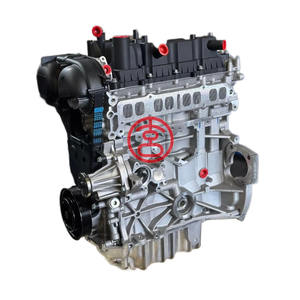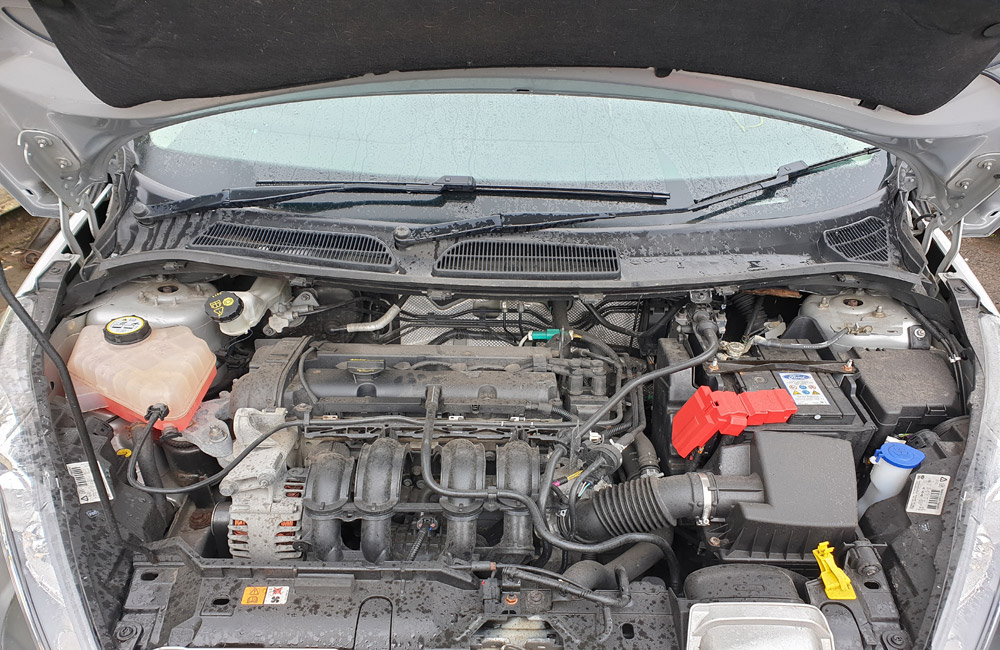The Future of Engines: Technologies Driving Sustainable Power Solutions
As the vehicle market browses the essential transition towards sustainability, the future of engines is increasingly specified by groundbreaking advancements. Electric engine advancements, alongside appealing developments in hydrogen fuel cells and biofuels, are reshaping the landscape of power options.
Electric Engine Dope
The evolution of electrical engine advancements represents a pivotal change in the aerospace and vehicle markets, driven by the urgent demand for lasting choices to nonrenewable fuel sources. This transition is defined by considerable advancements in battery technology, power electronics, and electrical motor design, which jointly enhance the effectiveness and performance of electrical engines.
Current advancements have led to the creation of lighter, much more energy-dense batteries, such as lithium-silicon and solid-state batteries, which assure longer arrays and much shorter billing times. In addition, enhancements in electrical motor efficiency, such as using irreversible magnets and progressed cooling down systems, enable electric engines to run successfully under differing problems. These improvements not only improve car efficiency yet likewise contribute to a decrease in general energy usage.
Moreover, the combination of sophisticated software application formulas has actually maximized power administration in electric lorries, permitting regenerative stopping and predictive billing techniques. As makers progressively welcome electrical propulsion, the aerospace and vehicle sectors are experiencing a paradigm change towards greener modern technologies. This advancement not just fulfills regulatory needs yet also lines up with consumer choices for eco-friendly transportation options, strengthening electrical engines as a cornerstone of future sustainable wheelchair.
Improvements in Biofuels
As the automobile and aerospace markets significantly prioritize sustainable energy resources, advancements in biofuels emerge as a complementary remedy to electric engines. Biofuels, acquired from natural products such as plants, waste, and algae, present an ingenious method for reducing greenhouse gas exhausts and reliance on nonrenewable fuel sources.
Recent research has actually concentrated on improving the effectiveness and sustainability of biofuel production. Second-generation biofuels utilize non-food feedstocks, reducing competition with food supply and lowering environmental influence. Moreover, innovations in artificial biology have made it possible for the design of microbes to create biofuels better, resulting in greater yields and reduced production expenses.
Furthermore, the development of drop-in biofuels enables seamless combination into existing framework, enabling a smoother change for sectors commonly depending on fossil fuels. ford fiesta engine. These gas can be utilized in current engines without modifications, facilitating their fostering throughout different fields
Investments in biofuel modern technology, in addition to helpful plans, are important to drive advancement and scalability. As the international community looks for to fight climate modification, biofuels supply a pragmatic, instant option that lines up with the overarching objective of sustainability in transport and aviation.
Hydrogen Fuel Cell Technology
A growing variety of business and researchers are discovering hydrogen gas cell innovation as a practical choice to conventional power resources in transport and energy systems. This modern technology converts chemical energy from hydrogen right into electrical energy via an electrochemical response, with water as the only byproduct, making it an ecologically friendly option.
The core of hydrogen fuel cells is the gas cell stack, where hydrogen molecules are divided into electrons and protons. The circulation of electrons produces power, while protons move via a membrane layer to combine with oxygen from the air, developing water. This procedure causes high effectiveness and reduced exhausts, positioning hydrogen gas cells as a critical gamer in the shift to sustainable power.
Significant developments have been made in enhancing the toughness and performance of fuel cells, along with minimizing prices via innovative production techniques. Furthermore, the growth of hydrogen manufacturing techniques, such as electrolysis powered by resource sustainable power sources, improves the sustainability of the total system. As framework for hydrogen refueling expands and production techniques come to be much more efficient, hydrogen fuel cell innovation holds wonderful assurance for decarbonizing various markets, consisting of heavy-duty transportation and stationary power generation.
Hybrid Solutions and Their Effect
Crossbreed systems stand for a substantial evolution in lasting engine innovation, merging traditional internal combustion engines with electric propulsion to enhance power performance and minimize exhausts (ford fiesta engine). This double technique enables lorries to use Continued both power sources, allowing better flexibility in energy usage and reducing dependence on nonrenewable fuel sources

In addition to ecological benefits, hybrid systems supply customers a feasible transition towards fully electrical automobiles. They alleviate range anxiety by combining the comfort of gasoline with the advantages of electrical propulsion, making them an attractive option for a broader target market.
The Duty of AI in Engine Layout
Leveraging advanced algorithms and equipment understanding methods, the automotive industry is increasingly integrating synthetic intelligence (AI) into engine layout processes. AI improves the effectiveness and performance of design by analyzing large datasets to identify optimum setups and performance specifications. This capacity enables designers to mimic different operating problems and predict engine actions under multiple circumstances, dramatically minimizing the moment and expense associated with conventional prototyping approaches.
Furthermore, AI helps with the advancement of innovative materials and burning procedures tailored for sustainability. By enhancing fuel effectiveness and reducing exhausts, AI-driven designs straighten with worldwide efforts targeted at reducing the carbon footprint of auto engines. Maker understanding formulas can additionally forecast maintenance demands, leading to improved reliability and long life of More about the author engine components.
Additionally, AI is important in the integration of electrification modern technologies, such as crossbreed systems, where it can optimize battery administration and power recovery processes. As the market relocates in the direction of more lasting power services, the function of AI in engine design comes to be significantly important, driving innovation and improving the performance of future engines. Inevitably, the cooperation in between AI and engine layout advertises a brand-new age of smarter, cleaner, and extra effective automotive modern technologies.

Verdict
In final thought, the future of engines is being formed by a convergence of ingenious technologies that focus on sustainability. Electric engine developments, biofuel growths, hydrogen fuel cells, and crossbreed systems collectively add to a considerable decrease in emissions and ecological impact.
Electric engine improvements, along with encouraging growths in hydrogen fuel cells and biofuels, are reshaping the landscape of power remedies. Additionally, improvements in electrical motor efficiency, such as the usage of permanent magnets and progressed cooling systems, enable electric engines to run effectively under varying conditions. By maximizing gas efficiency and decreasing emissions, AI-driven styles align with worldwide efforts intended at minimizing the carbon footprint of automotive engines. As the market moves towards more lasting power remedies, the function of AI in engine style comes to be increasingly essential, driving innovation and improving the performance of future engines. Electric engine developments, biofuel developments, hydrogen fuel cells, and crossbreed systems collectively add to a considerable reduction in emissions and environmental effect.